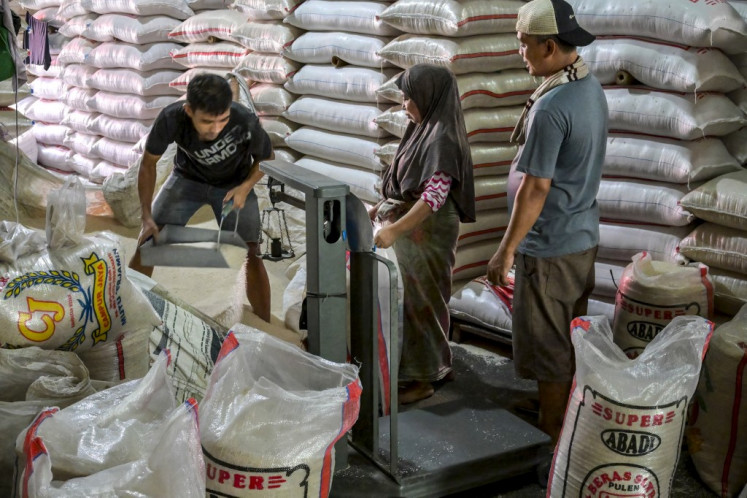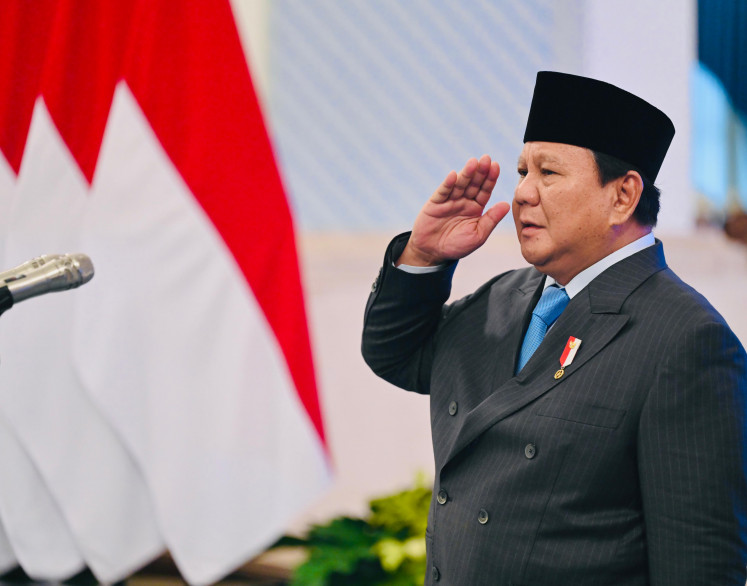Popular Reads
Top Results
Can't find what you're looking for?
View all search resultsPopular Reads
Top Results
Can't find what you're looking for?
View all search resultsIndonesians are happy, but only when measured differently
The Central Statistics Agency (BPS) said that when collating the countryâs first ever Happiness Index it had applied different parameters from other similar indexes
Change text size
Gift Premium Articles
to Anyone
T
he Central Statistics Agency (BPS) said that when collating the country's first ever Happiness Index it had applied different parameters from other similar indexes.
Other indexes include the Organization for Economic Cooperation and Development's (OECD) Better Life Index and the United Nations' World Happiness Report.
BPS accounts and statistics analysis deputy Kecuk Suhariyanto said that there were unique standards that were not relevant to other countries, such as Indonesians ranking happiest if they were married with two children, citing fulfillment in the personal, social and environmental dimensions, which the survey used as its main indicators.
'When scored in terms of harmony, a household with two children is the happiest,' said Kecuk, speaking about the social dimension component.
He also said that this segment of the population scored higher than single people, those married without children or those married with more than two children.
'Married life is happier than single life. There are different elements affecting the personal and the social dimensions, which cause or complement happiness,' he said, adding that Indonesian women were happier than their male
counterparts.
The BPS' data shows Indonesians to be most unhappy when it comes to education and income.
Kecuk said that the timing of the survey's publication was not politically motivated.
'We can assure you that the survey was not conducted with any political motives. It has nothing to do with the current transition of power, [although] we will pass this data onto the government in the hope that it will help mold and review public policy,' he said.
Economists have responded with skepticism especially with the use of some of indexes in the survey.
Enny Sri Hartati, who is the director of the Institute for Development of Economics and Finance (Indef), suggested that although the index was consistent with the Constitution's main objective of improving people's social welfare, the happiness index could not be used to judge how far the country had advanced.
'To improve the welfare of the people, there are material and immaterial factors at play. Material aspects, such as economic growth are more quantifiable than the immaterial, which cover feelings of security, gratitude or happiness,' Enny told The Jakarta Post.
Enny said that the happiness index would only be a reference for the public.
Hendri Saparini, another economist, warned against the subjective parameters the BPS used in the index.
'Indexes like this could be used in countries with people whose basic needs are already met. Indonesia should not have to force itself to use such vague indicators, as we're still at a basic level [of development],' said Hendri, who is the executive director of the Center of Reform on Economics (CORE) Indonesia.
Hendri said she was also concerned that the methodology of the happiness index could overshadow more pressing needs.
The BPS' index follows in the footsteps of happiness economics, which was thought to have been pioneered by the north Asian country of Bhutan with the term 'Gross National Happiness' (GNH).
Bhutan's fourth king, Jigme Singye Wangchuck, coined the term in 1972 on the belief that people's happiness did not solely depend on a nation's economic wealth, according to the country's Center for Bhutan Studies and GNH Research. It became an alternative to a nation's gross domestic product (GDP) based on economic activity.
The Indonesian Happiness Index was compiled from the results of a survey conducted by BPS since 2013, involving a sample of 9,500 people from across the archipelago. It is currently still in the early stages and has yet to show conclusive data broken down by province. (tjs)










